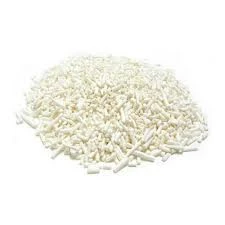
emulsifier 471 472
Emulsifiers E471 and E472 Their Roles and Impacts in Modern Food Production
In today's culinary landscape, emulsifiers play a crucial role in enhancing the texture, stability, and overall quality of various food products. Among the numerous emulsifiers utilized in the food industry, E471 and E472 stand out for their versatility and wide acceptance. These food additives are derived from fats and oils, and they are primarily used to improve the consistency and appearance of food items. This article explores the nature of E471 and E472, their uses, safety, and impact on our diets.
Understanding E471 and E472
E471, also known as mono- and diglycerides of fatty acids, is produced by the glycerolysis of fats and oils. When fatty acids combine with glycerol, they form diglycerides and monoglycerides, substances known for their emulsifying properties. This means that they can help blend ingredients that typically don’t mix well, such as oil and water. E471 is widely used in baked goods, dairy products, margarine, and many processed foods.
E472, on the other hand, refers to esters of glycerol and fatty acids, which come in several forms, including E472a, E472b, E472c, and E472d. Each type has distinct properties and functions, but they share the common trait of acting as emulsifiers. These esters are derived from various sources, including vegetable oils and animal fats, making them suitable for a broad range of dietary preferences, though those seeking vegetarian or vegan options should verify the source of the emulsifiers in specific products.
Functions in Food Products
The primary function of both E471 and E472 is to stabilize emulsions in food products. For instance, they are commonly used in salad dressings to prevent the separation of oil and vinegar, in ice creams to maintain a smooth texture, and in baked goods to enhance moisture retention and extend shelf life. Without these emulsifiers, many processed foods would suffer from poor texture and appearance, leading to reduced consumer acceptance.
emulsifier 471 472

Moreover, these emulsifiers can also improve the palatability of low-fat products. When fat is reduced, the texture often becomes dry or crumbly, but the addition of E471 and E472 can help retain that sought-after creamy mouthfeel. This makes them invaluable in the production of low-fat or fat-free alternatives, which are increasingly popular among health-conscious consumers.
Safety and Regulations
The use of emulsifiers E471 and E472 is regulated by food safety authorities around the world, including the European Food Safety Authority (EFSA) and the Food and Drug Administration (FDA) in the United States. These organizations maintain that both emulsifiers are generally recognized as safe (GRAS) when used within recommended limits.
However, some individuals may have concerns regarding the consumption of emulsifiers derived from animal sources, particularly those with dietary restrictions such as vegans or vegetarians. As the food industry becomes more transparent and consumers demand cleaner, plant-based products, manufacturers are increasingly sourcing these emulsifiers from vegetable origins, catering to diverse dietary preferences.
Conclusion
E471 and E472 are essential components in modern food production, ensuring products remain appealing and consistent while also catering to various dietary needs. Their ability to enhance texture and stability makes them invaluable, particularly in processed foods that strive to meet consumer expectations for quality and convenience. As the food industry continues to evolve, understanding these emulsifiers helps consumers make informed choices about the products they consume. With growing interest in health and sustainability, the role of emulsifiers will undoubtedly adapt, leading to innovative formulations that align with contemporary dietary trends.
-
Why Glacial Acetic Acid Food Grade Is Essential in FlavorNewsMay.26,2025
-
Surging Export Growth of Food Additives in ChinaNewsMay.26,2025
-
How Ammonium Nitrate Fertilizer Boosts Crop YieldsNewsMay.26,2025
-
How 1,2,3-Benzotriazole Shields Plastics from UV DegradationNewsMay.26,2025
-
Cyanide in Gold Mining: Protecting People and the PlanetNewsMay.26,2025
-
Aluminum Hydroxide in Modern Sunscreen FormulationsNewsMay.26,2025
-
Understanding Synthetic Rubber OptionsNewsApr.27,2025
Hebei Tenger Chemical Technology Co., Ltd. focuses on the chemical industry and is committed to the export service of chemical raw materials.
-

view more DiethanolisopropanolamineIn the ever-growing field of chemical solutions, diethanolisopropanolamine (DEIPA) stands out as a versatile and important compound. Due to its unique chemical structure and properties, DEIPA is of interest to various industries including construction, personal care, and agriculture. -

view more TriisopropanolamineTriisopropanolamine (TIPA) alkanol amine substance, is a kind of alcohol amine compound with amino and alcohol hydroxyl, and because of its molecules contains both amino and hydroxyl. -

view more Tetramethyl Thiuram DisulfideTetramethyl thiuram disulfide, also known as TMTD, is a white to light-yellow powder with a distinct sulfur-like odor. It is soluble in organic solvents such as benzene, acetone, and ethyl acetate, making it highly versatile for use in different formulations. TMTD is known for its excellent vulcanization acceleration properties, which makes it a key ingredient in the production of rubber products. Additionally, it acts as an effective fungicide and bactericide, making it valuable in agricultural applications. Its high purity and stability ensure consistent performance, making it a preferred choice for manufacturers across various industries.











